Last week I came to the defense of fan-fiction and the people who write it. As I said then, many of us have written it in the past, including many professionals, but the entire thing has been stigmatized to the point that every former fan-fiction writer I’ve known talks about it with shades of shame and a dose of self-deprecation. I have yet to speak to someone talk about their old fan-fiction and then tell me something they did right.
Think about that. It’s common enough to hate your old work, but everyone remembers their first truly original peace (with just as many flaws) with at least one good memory. The fact that we remember the fan-fiction solely for our mistakes shows that we’ve scorned the entire practice to the point that it’s like admitting that you touch yourself at inappropriate times.
Though, considering a lot of the sub-genres within fan-fiction, they may related for some.
The point is, I’ve seen fan-fiction act as a gateway drug – a chance for people to enter writing in a safe place and with the pieces already laid out for them. But, as is so incredibly clear, the better practices of writing aren’t something that people start to learn until they exit the fan-fiction stage because…who are they going to ask? Everyone who knows enough to teach them is generally laughing at them. And, frankly, that’s part of that barrier of entry they’re trying to edge around.
So let’s drop the scorn for a bit and try to be constructive…
Writing Better Fan-Fiction (part 1)
As a gateway drug, fan-fiction helps creators get over their lack of confidence, but not necessarily their lack of skill. The old saying is that “practice makes perfect”, but that’s often corrected as “perfect practice makes perfect”. If you’re doing something wrong over and over again, without seeing the right way to do it, it’s hard to get better at doing the right version of it. So while fan-fiction is indeed practice, as many people can rightfully point out, it’s not exactly “perfect” practice.
A lot of people are quick to point out the grammatical mistakes, and those are severe, but those are also the easiest to find some reference for on the internet. A simple search will quickly get you any answer you need on things like “i before e” or whether or not you should use a semi-colon. So what I’d prefer to focus on in this time is what is most unique to writing fan-fiction: writing in another person’s world.
The way I see it, if we improve that skill, it can also help professionals who have to do what I dubbed professional fan-fiction last week. A lot of people out there right now may be writing spec-scripts, or working for a TV staff position, who are doing a lot of what fan-fiction writers need to learn to do well. Learning it now may make them better at those positions later. Hell, if you start polishing up your fan-fiction work now you may one day be the person who does all of James Patterson’s writing for him when it doesn’t involve an outline or a check.
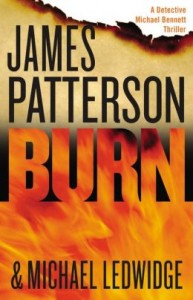
So to address problems unique to fan-fiction we need to start with…
Identifying What You’re Writing
This may seem like an odd thing to consider for a lot of you – after all, you’re clearly writing fan-fiction. But when a lot of people get an itch to start writing they usually don’t know what they’re going to write. You’ll have an idea in your head, but that idea is usually just a flicker and you don’t really set a true goal for yourself except getting that idea to paper.
If you really think about it, while there are dozens of sub-genres out there, all fan-fiction really falls into four categories. This is inescapable because of the nature of the beast. But, because most people don’t think about what they’re going to do before they do it, they tend to meander. So, first, pick a category.
The Gaiden
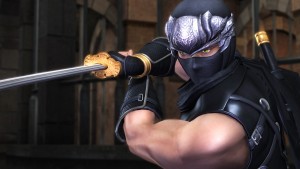
Some of you may be familiar with this word from videogames but not know what it means. A Gaiden, a Japanese word roughly translating to “side story” or “tale”, is a bit more inclusive than just the phrase “side story”. In a Gaiden, you’re adding to the world in some fashion. Maybe there’s a character who didn’t have their background fully explored in the original material, or a location, or a period of time. Any Gaiden story is essentially filling in a gap somewhere, either through addition of biographical information or through world-building that couldn’t be covered in the original.
The rule for making a story like this better is simple: don’t try to reinvent the wheel. I know your first instinct is that you have to make this story as interesting as absolutely possible, but if you’re writing a character’s backstory and the details you add for flavor end up making no sense when paired with the original – you’ve missed the point. Sometimes mundane things can be as interesting as fantastic ones. A character may be just as traumatized from losing their parents to illness or an accident as they would from having them gunned down in front of them.

You don’t have to add something extreme to the world to make it interesting, the story can carry itself. Take what exists and remember: if there was something way more fantastic there, it would have already been mentioned. You can build a good story without “revealing” someone is “actually” the child of a vampire lord and is “really” the heir to an unholy legacy.
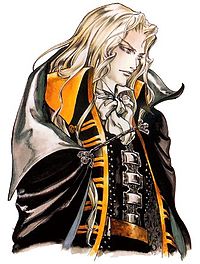
The Homage
I know some people who have trouble with the word “homage” and understanding what it means. Broken down to its very basic meaning, it’s when something you do is specifically done to tip your hat to the original. Say that a story inspired you and you want to show respect for it, an homage can be a simple cameo or borrowed elements, maybe even writing a story in someone’s world to show you cared about it. But the thing about these stories that would separate them from the Gaiden above is that these don’t necessarily have to connect to the original material – at all.
If you write a story about another magic school in the world of Harry Potter other than Hogwarts at roughly the same time period that those books happened – that’s a Gaiden. You’re filling in a blank, likely referencing the events from a different perspective. On the other hand, if your story takes place in a time period completely different from the original and you’re just borrowing the setting – that’s more of an Homage. The difference here is that you don’t really need to make any references to the original to make that second concept work, while it would be impossible to set up the time period for the first concept without name dropping some events.
See the difference?
The rule here is simple too: don’t copy and paste. If you’re going to avoid using the material from the original, really avoid using the material from the original. If your “American Hogwarts” has a house with a Manticore instead of a Griffon on its crest and you’re following a boy in glasses with his friends the ginger and the nerdy girl – why didn’t you just use the originals?
If you’re going to cut your own path, create your own characters, make them unique and avoid using the original material’s tropes. It will be a little uncomfortable, but you’ll find a lot of people respecting your decision to do it. And, if you can’t do that, go ahead and use the originals – people will respect that more than copies too.
The Alternative
Speaking of using the originals – sometimes you’re going to be prone to thinking the original author just got it wrong. I won’t even go into the other topics around this, especially in a day and age where The Death of the Author is a thing. But a lot of people do this, especially in nerd communities. It takes a lot of passion to re-cut the Hobbit movies into a single 4 hour mastercut. That kind of passion exists in the fan-fiction community as well.
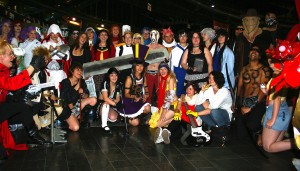
So in this case, as you’ve decided to write an alternate version to fix what the creator got “wrong”, there’s a simple rule: keep your adjustments appropriate for your skill level. If you’re the kind of person who wants to fix things in the first place, you probably have a lot of details that you want to approach. But the more complicated your version becomes, the easier it will be for you to start to make mistakes of the same scale (or larger) of the mistakes in the original version.
For instance, say you’re watching a series of Prequels to a beloved franchise that happens to feature an alien that may or may not happen to have an incredibly stereotypical Jamaican accent. Your gut instinct may be to try to write a brand new character and subplot to completely remove this character, his race, and every plot detail around him from existence.
…promptly opening up a ton of plot holes shaped like the goofy bastard’s face all over the story.
This doable, those plot holes are fixable, but consider that the entire third act of that particular film would have huge holes in it without that character’s race. You would have to write replacement material for almost all of that. If just one character and his subplots would do all of that – imagine if you went crazy and did that for multiple characters. For each thread pulled from the fabric, you’re unraveling much larger sections and increasing the difficulty. Before long, if you bite off more than you can chew, you’re going to add some ridiculous crap that will make just as many people groan and roll their eyes as the original did.

The Indulgent
There is an inconvenient truth to this entire topic that must be addressed. While a lot of fan-fiction gets an undeserved bad rap because of some outliers, that “outlier” is actually so mainstream that it’s my fourth category. This is where your story ends up when you do it just to fill a personal need that you know before you put it to paper is just wrong. Every single time a professional or an observer happens to start shitting on fan-fiction, it’s directed at this category. Yeah, there’s grammatical errors everywhere, but this…this shit here is where the real problem comes in.
For the other three categories I’m giving constructive criticism and tips on how to avoid making some pitfalls. There’s room for improvement in all of those other domains. But if you’re absolutely serious about becoming a writer and it’s not just a hobby you’re doing for shits and giggles, there’s only one piece of advice I can really give you about this category here: don’t do it.
It’s not that I don’t want you to have fun, I want you to have fun. And, honestly, if you’re just doing it for fun then you go on being you and I won’t care. There’s room in the world for Harlequin Novels, there’s room for you too. Have at it, do all the slash fiction you want. That’s something you’re doing for you. But if you’re writing this stuff and have aspirations that one day it would become the next major smash hit, we’re going to have to go ahead and be honest about this.
So I want you to make sure you’re ready for my friend, “cut the shit” Gorilla. You ready?
Okay, here goes…
You porn doesn’t need to get that fucked up to be “art”. If you’re writing something freaky for your own entertainment, have at it. But if you expect the world to respect your work as art, leave the stranger stuff out. Sure, you’ve seen a ton of tentacle stuff from Japan, but even they didn’t get to that naturally – there’s a complicated history behind that (and yes, if you ask in the comments, I will explain that another time). So it’s not something you have to do.
You want your work to be well liked? Don’t put yourself in it. You’re already writing the story so you’re already god, anything else is unnecessary. You literally can’t get any more special in this process, you control everything about it so you don’t have to be in it. Be satisfied with playing god, not being Jesus.
If you’re really a fan, you should like the characters enough not to make them look stupid to service your new content. Yeah, I get it, it’s your ego, but if you’re going to use the work of another person you should respect it as if it were already your own. In fact, you should respect it more.
There’s a lot more detail I can go into about all of this, but I realize now that I’m pushing the limits of attention spans for a blog post. So, not wanting to leave anyone hanging, I ask you to come back again next week for a little more about the ins and outs of why some common problems are actually problems and not just minor annoyances.
In the mean time, I want you to realize that there are good fan-projects, some that are actually well received by the communities as a whole. There are works that people are willing to recommend to others and have been given the thumbs up by the original creators. We have a love-hate relationship with fan-fiction, but that doesn’t mean you can’t create something that falls into the “love” category.
In fact, some projects have received almost universal love. Why?
A little love, respect, and anal attention to detail can go a long way.
(I write novels. I used to write fan-fiction. Next week, I’ll really get into why you shouldn’t commit the sins of that last category.)


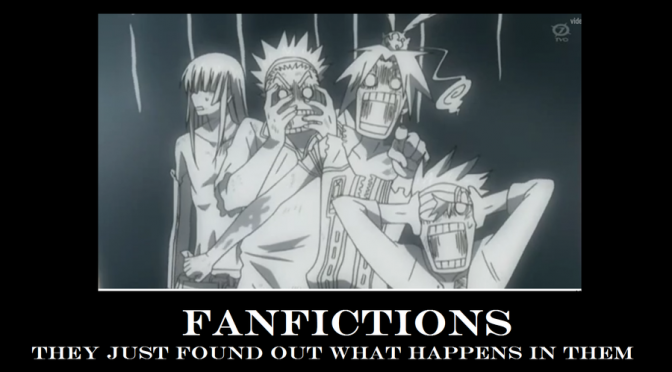
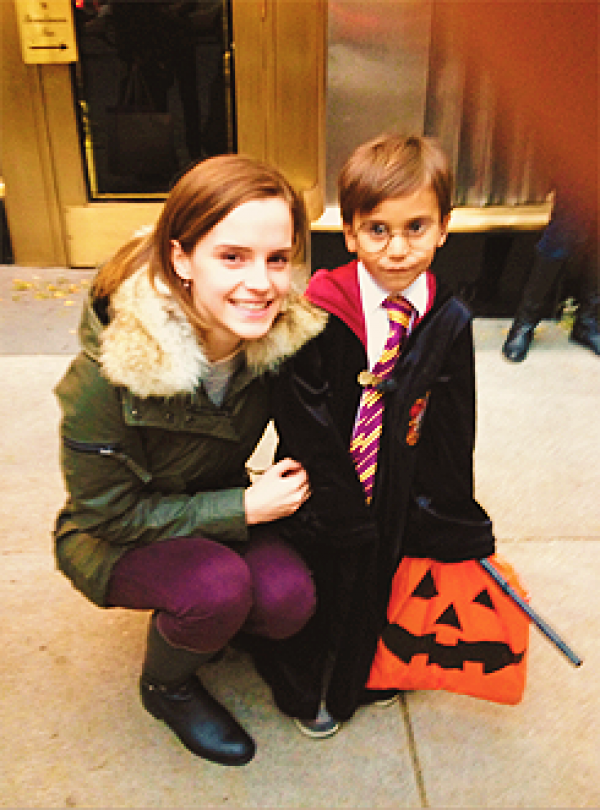
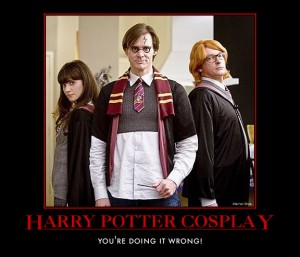


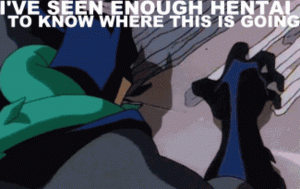
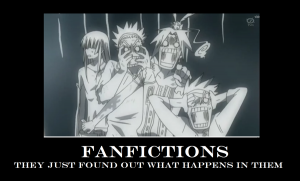






Now i’m curious what the Gaiden of Ninja Gaiden would be. How do you side story a side story? Gaiden the Gaiden?
And what is Ninja Gaiden a side story OF anyway? Is there a main story we’re not seeing? Is there a secret ninja game much harder and better out there we never saw?
Easy answer: Ninja Gaiden was easier for American audiences to say than Ninja Ryukenden (the original title).